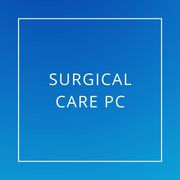
A hernia is the result of an internal organ protruding through the muscle or tissue that contains it. These bumps or lumps normally appear on the abdomen, but they can sometimes show up in the groin area. Hernia surgery is generally required to remove, tie off, or push the protrusion back into place as it does not go away on its own. If you suspect you’re dealing with a hernia, you might have a few questions. The following guide answers several common inquiries about this condition.
A Guide to Hernias
What causes a hernia?
When there is an opening or weakness in a muscle and repeated strain on the abdominal or groin area, the pressure placed on an organ can cause it to push through the weak spot, creating a hernia. Pregnancy, aging, constipation, persistent coughing, obesity, and heavy lifting produce the stress and force necessary for these bulges to develop.
Why do they hurt?
Not all hernias cause pain or lead to symptoms. Some affected areas feel tender and produce a dull ache or twinge when strained.
When a patient with a hernia does feel severe pain, it is often because the organ is pinching nearby nerves or stretching and tearing the muscle and tendons it is pushing against. The pain will intensify the more the lump protrudes, but it dulls as it recedes back into the abdomen or groin.
How are they treated?

Hernias can result in serious problems, including strangulation—a life-threatening phenomenon where blood flow is cut off from the protruding organ or tissue. Since this condition is unlikely to resolve on its own, your doctor will likely recommend hernia surgery to prevent complications. Hernias are repaired through open or laparoscopic surgery. The latter is a minimally invasive procedure that uses a small camera to guide the operation.
What kind of post-treatment care is required?
Always take time to rest and heal following hernia surgery. Do not strain yourself or lift heavy objects while recovering. If you undergo open surgery, the recuperation period will last longer.
The surgical site may hurt, so take the pain medication your surgeon prescribes you. They will also leave you with some care instructions. These directions, which generally include wound care and diet recommendations, are essential for ensuring a full recovery.
If you have a large, painful, or potentially dangerous hernia, reach out to Surgical Care PC for precise and effective hernia surgery. This experienced team has been serving Lincoln, NE, and surrounding areas for over 30 years. They perform a wide range of safe surgical procedures, including varicose vein treatment, breast cancer treatment, colon surgery, lymph node surgery, and hernia repair. These professionals are committed to each patient's comfort and will happily answer any questions or concerns about the upcoming operation. Call (402) 476-6626 to speak with a friendly staff member and schedule your appointment, and visit them online to learn more about the procedures they offer.
About the Business
Have a question? Ask the experts!
Send your question

